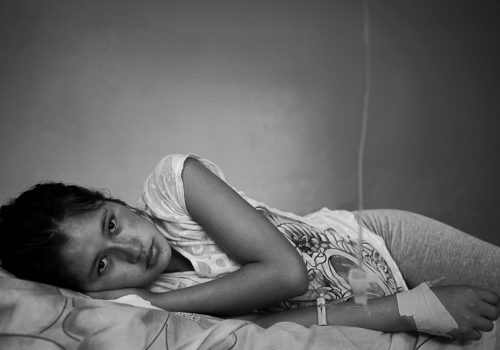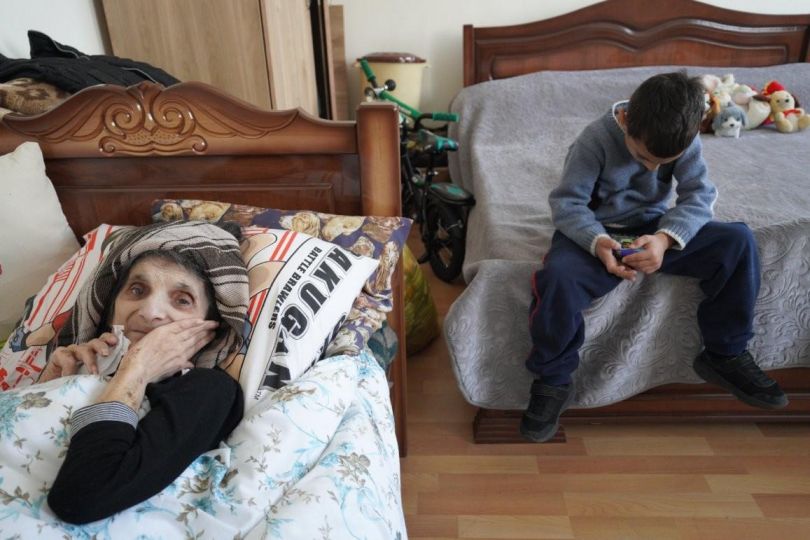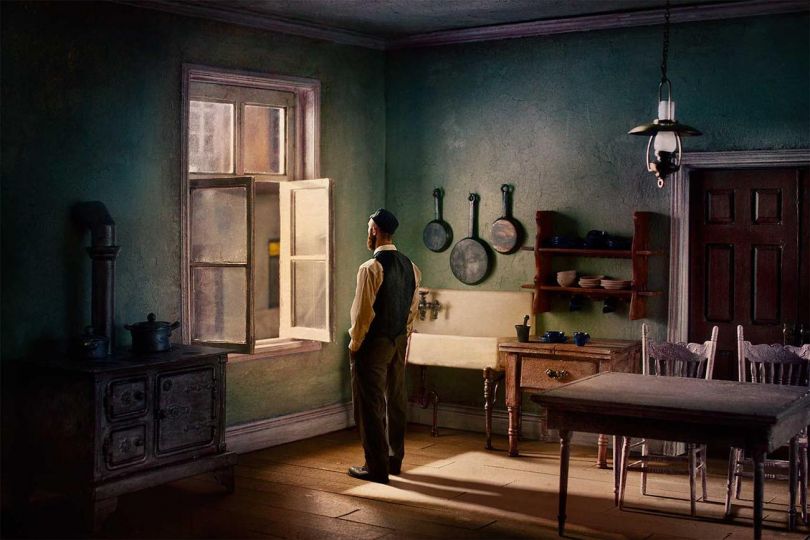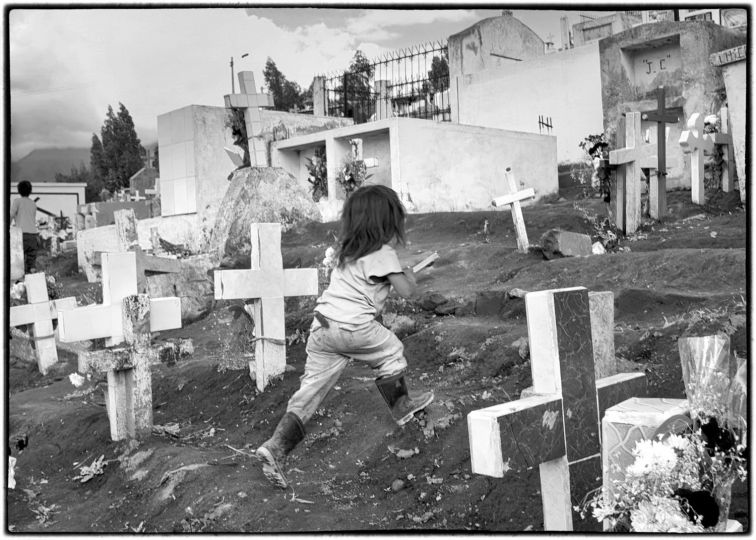Eighteen hundred newborns die each year from unsafe deliveries in Paraguay, and at least 1,500 children lose their mother from preventable causes related to childbirth. This is just the beginning: the country is at the top of adolescent pregnancy in Latin America (along with countries such as Haiti), making this a critical stage in which 25% of deaths in children under 19 years are due to clandestine abortions . In addition, short-term consequences of deficiencies in the health system are fatal, and that more than 3,000 children under five die every year due to the lack of post-partum care, lack of vaccination and being part of the 80% that not receive breastfeeding.
In the first week of February in the District Hospital of Boqueron, even if there was a pediatrician, they wouldn’t have work to do. had a pediatrician would have had no work. All children were stillborn or died from lack of medicines and medical equipment to keep them alive. The dead children are abandoned by their families and buried in boxes of bullets, funerals are sad procedures for the hospital director, who is in charge of the ceremony and then return to work where their ambulances have no fuel, kits remedies are empty and there is insufficient equipment to perform basic studies to the 70 000 district citizens.
That is the situation in the Paraguayan Chaco, where doctors say that less than 40% of these deaths are counted for official statistics, that differs from the inhabitants reality -mostly indigenous – in which they are isolated from the hospital by difficult paths to navigate for them and unknown to the regional director’s off-road trucks.
Rosalino Gonzalez words, leader of an indigenous community in Laguna Negra, describe a situation of abandonment repeated throughout the continent, only not so dramatic: “In my community we can only reach the hospital using tractors or my bike, making it slowly or dangerous to go with someone pregnant or injured, and from the hospital no one ever comes … except in elections, that’s when they arrive with promises …”. And those words that seem to other words, said in many places, speak of a unique situation: the Republic of Paraguay is one of the poorest countries in Latin America, and Latin America is the region where there is more inequality in the world, and this reflects in all aspects of life there, from the moment of birth until death. These are the precise, seemingly distant facts that the political and social situation of this country unfortunately forced them to come together and be all in the same place, day after day, causing death where there should be life, boxes instead of cribs: deaths from births.
This is how getting to the DHB, on foot or transported by tractors, some patients get adrift, waiting for hours or days for treatment or return to their homes; they prefer to spend the night outdoors at 50°C and not in their warmer rooms lacking of adequate medical care.
In Asuncion, the situation is different, though no less regrettable; in our first visit to the Hospital from Barrio Obrero, Dr. Fernandez, without the attending doctor specialized in surgery or split the work with her, takes 24 hours shifts followed by more than ten Caesarean deliveries, two vaginal and four interventions in a critical state women due to abortions performed by unqualified people, and the structural impossibility of making necessary studies for mothers, or lack of medical records of them, note that ” the most important thing here is to have instinct, and that it does not fail you”.
While the doctor is operating on a mother, a girl of 16 years with a bleeding caused by an abortion walks into the bathroom leaving a huge trail of blood, when she came back she said that something came out of her, returned to her bed and stared at another girl bleeding on a stretcher.
Three other teenagers lying on mattresses await their turn for surgery, the youngest, aged 15, tells us that her 42 years old partner got her pregnant and lives with him, despite not liking it, because her mother could not bear her and other eight siblings. A few meters away some doctors lament the death of a woman who, due to the lack of an anesthetist, was administered too much anesthesia during childbirth the day before.
Pregnant girls are weak and in poor health, they scream and feel great pain, try to console each other, crying, and their weeping blends with the back sector, where there are 25 babies born with complications, a figure constantly renewing almost daily because of deaths, transfers and few discharges. The doctor comes out of surgery, and a mother must be admitted in intensive care, but all the hospital beds are designed for patients with injuries, so that mother and all of the country must be very lucky and hope that one of the few available ambulances take her to the National Hospital to save her life.
The crisis in the Paraguayan health system, for more than half a century, is one of the main concerns of the sectors that seek social justice, and after the country suffered a historical lack of commitment to the public health system from of their rulers, when the current government took the decision to free the health service on last December, sabotage and lack of commitment by the executors of this measure made it obsolete: many doctors continue to charge, now illegally, for their services; the structural arrangement of the hospital continues to point to services that represent higher incomes to the institutions, turning their backs to the most critical situations. The hospital directors could not organize their hospitals in a way that meets the needs of patients, even if they wanted to.
Some hospitals lack staff, others space, in all of them the consumables are of poor quality, and that’s where it is essential the fi gure of the doctor who gives more than anybody would be asked for, and attempts to curb health catastrophe in which the region is living. They are the first to highlight the need to constantly be prevented, be educated in schools and hospitals on sexual and reproductive health.
The fact in terms of health policy concerns, is that Senator Carlos Filizzola has submitted a bill which seeks to end the lack of legal basis for the care and treatment of mothers and children in Paraguay, but that project wasn’t accepted and no other was written in it’s place by those who were opposed, due to a counter-information campaign of the corrupt Paraguayan media, who handled the political situation and the mass ideas by diverting the issue of maternal and child health and alleging that the law was to legalize abortion and other issues related to gay rights, issues which themselves are treated but not to promote, to be respected, as well as promoting sexual and reproductive education and mobilize the health system, making available, to mothers and children, more and better services for labor and birth, which is urgent and imperative to make maternity wards cease looking very much like a butchery.
As in the rest of the hospitals, the Paraguayan Red Cross lacks social workers, so doctors and nurses often take over the emotional state of the girls, and although they often do not have the necessary resources to handle extreme situations, they give the best of themselves to support their patients.
A girl cries begging because she doesn’t want her child to born, she asked me to take her out of there, “let’s go” she insisted, “get me out of here, come on…”. It is one of over 10 teenagers to give birth every day in the PRC. These girls face an undesirable situation; many are victims of sexual abuse and others of the lack of sex education and reproductive health. They moan and cry out the anguish held for nine months, they were excluded from society, whatever their life was until then, it dies there, although they are not buried.
Rodrigo Alfaro
















